- Home
- slideshows
- miscellaneous
- I spent a day with a health van providing care to low-income New Yorkers, and it reveals a hidden safety net for thousands in the world's wealthiest city
I spent a day with a health van providing care to low-income New Yorkers, and it reveals a hidden safety net for thousands in the world's wealthiest city
Every Tuesday, a CHN van parks close to the intersection of 14th Street and Second Avenue. Vans are stationed at different intersections in the city most days of the week.

Dr. Freddy Molano, the vice president of infectious diseases and LGBTQ programs and services at CHN, has been working at the organization since it began. He witnessed the implementation of the mobile health clinics when the idea wasn't "fashionable," he told Business Insider.
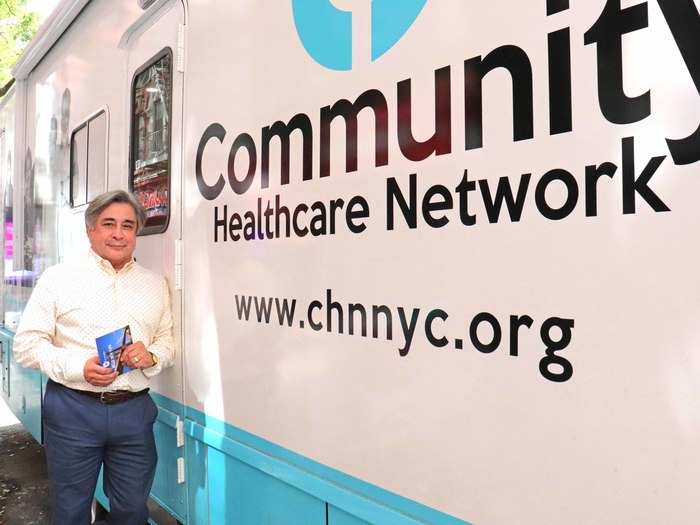
The first van was in the Lower East Side, where CHN provided basic medical care to the homeless population. Molano said that by having a van come to the communities on a weekly or twice-weekly basis, the organization ensured that people who might not otherwise receive medical care could get access to these services.
"What might be obstacles at other clinics, here, are not. We see you regardless of income," Molano said. "We see many people who have never even seen providers."
Inside the van, Nehemias Grullon, a community educator, looks at patient records and talks to incoming patients about insurance options. He collects pay stubs and general income information to help patients figure out their insurance options.
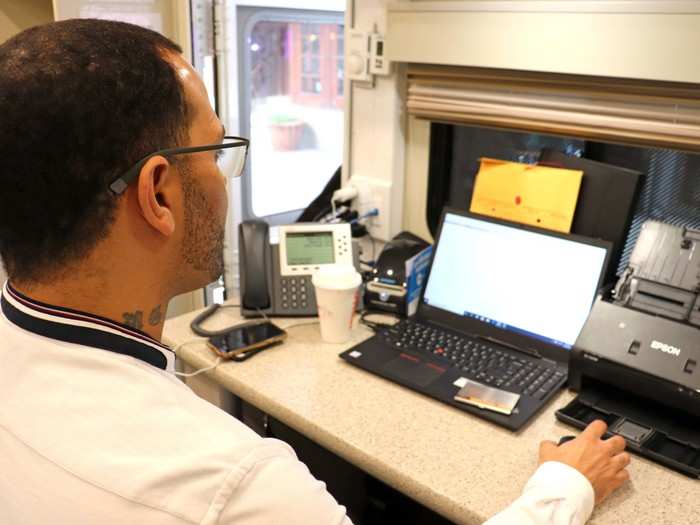
On average, the vans, which mainly offer primary-care and sexual-health services, see 15 to 20 patients a day, with some seeing as many as 25. People can come to the van with an appointment or walk in.
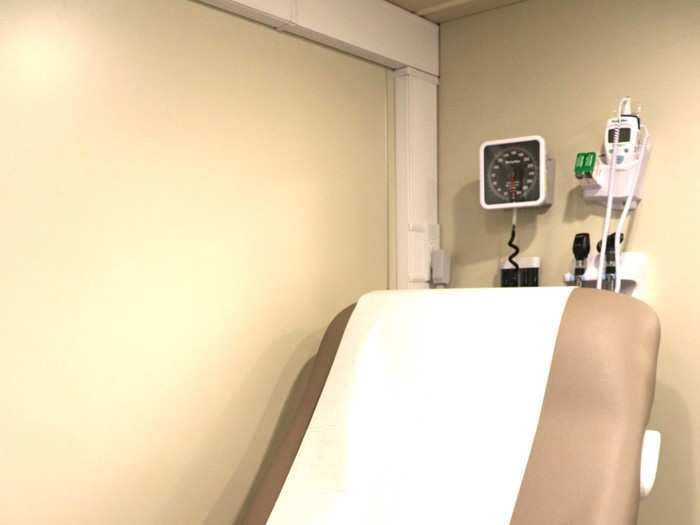
Ofiong Okon, a nurse practitioner and CHN's medical director of mobile van health centers, began working at CHN five years ago, becoming a medical director one year after joining the organization.
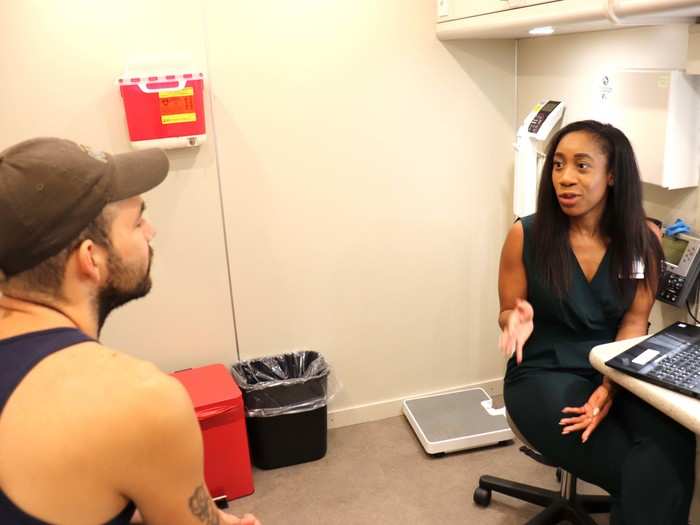
"When I think of mobile care, it really is the essence of community health," Okon told Business Insider. "It makes sense to go where the community needs you. It's an evolving model of what primary care traditionally looks like."
Daniel Waits, who's uninsured, said he's visited the health van four times since July. Waits told Business Insider he found the clinic from a simple Google search and made an appointment the same day.
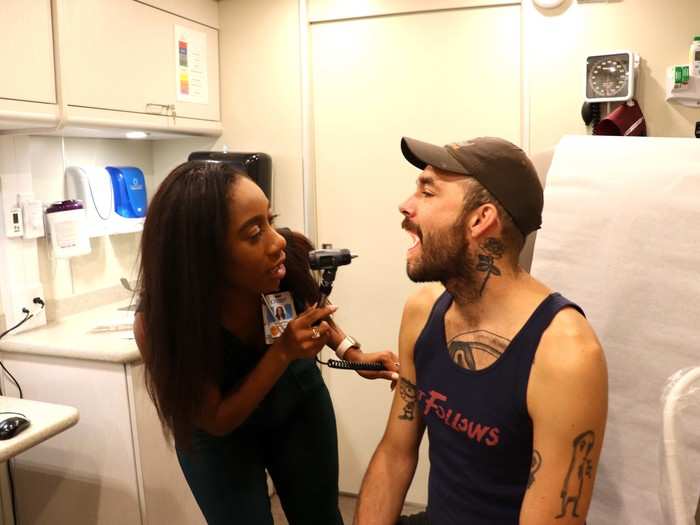
Waits said he likes that there isn't usually a long wait time, unlike at other health clinics.
"It's really quick, which is great. I'm usually not here for longer than an hour," Waits said. "The services they provide are limited, but what they can provide for sexual health and basic care is very comprehensive."
Waits said he doesn't notice that he's in a van when he goes for his appointments. "It just feels like a room, like any other clinic," he said. "You don't notice you're in a van until you go outside."
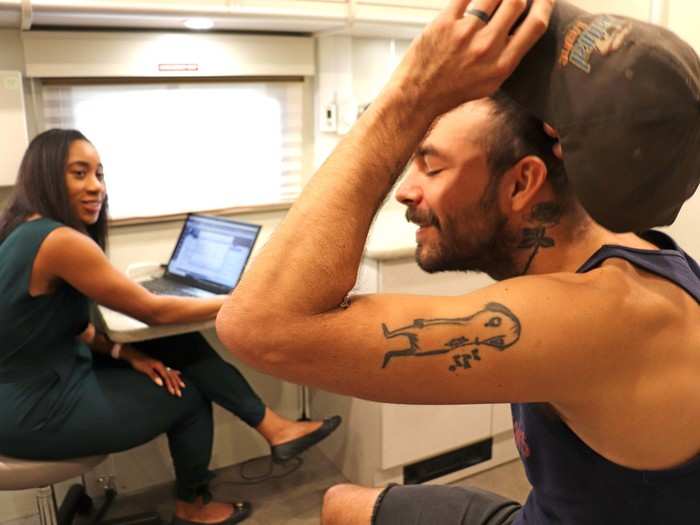
During this visit, Waits had to show paperwork with his income to see what insurance he qualified for. But Waits said he doesn't see the point in getting insurance.
"I'm in a weird bracket where I don't make a ton of money but I'm not super poor — I'm in this mid-range," he said. "To pay a monthly premium and high deductibles doesn't make sense to me. I'd rather just pay the fee when I use the emergency room, which is rare. It actually ends up costing less."
Okon often also provides a sexual-health consultation to patients, discussing treatments like PrEP, a medication taken to prevent people from getting HIV.
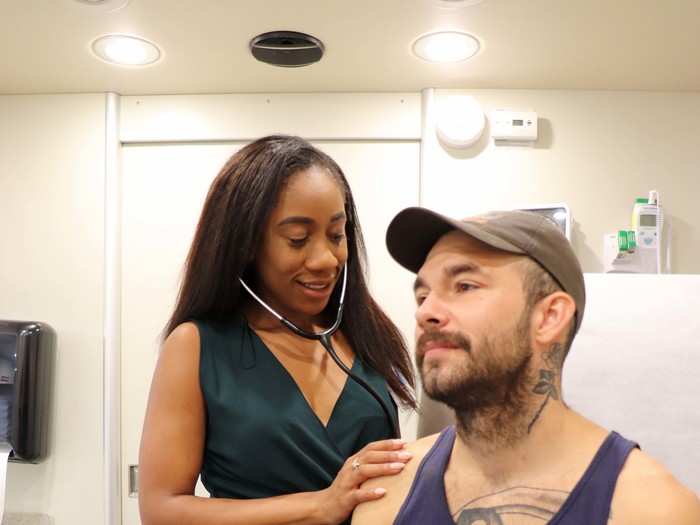
Okon said CHN provides a lot of sexual-health education and care with PrEP.
"This is an open environment, and we want people to feel comfortable and feel like this is their community," she said.
Okon has some recurring patients and has become a personal care provider for some patients over the years. She is in the mobile van two to three days a week and works at a CHN clinic in the South Bronx.
After each visit, Okon washes her hands and prepares to see her next patient.
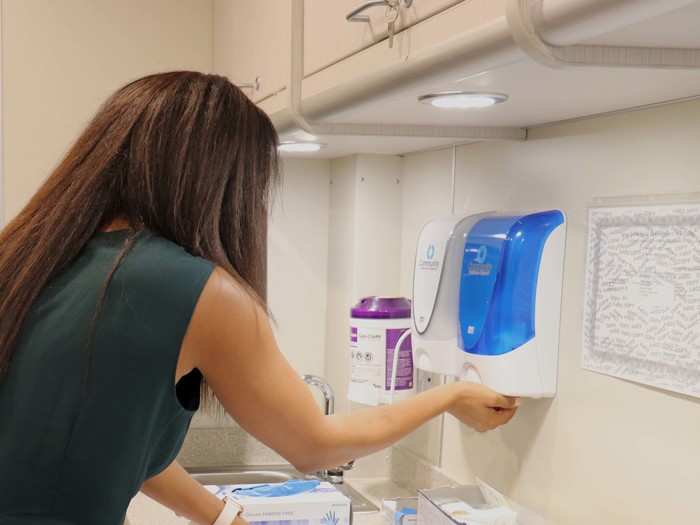
Healthcare providers in the van can also take blood for disease screenings and other tests. CHN says the 14th Street van location averages about 900 unique patient visits annually.
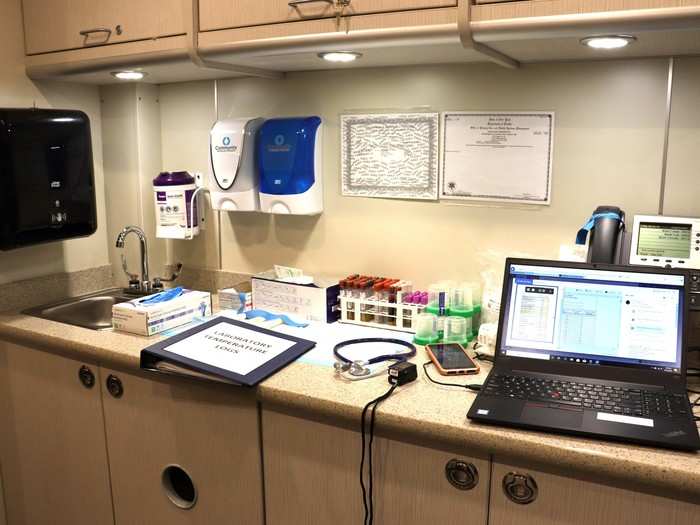
The focus for CHN is preventive care, or keeping patients healthy.
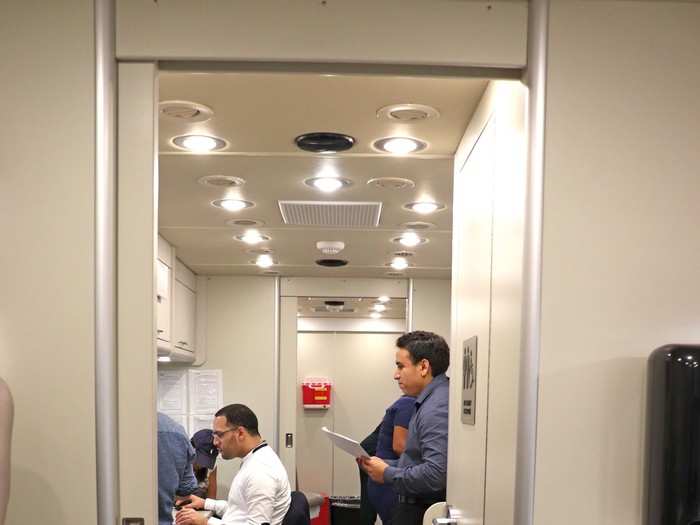
"I have been here for 30 years, and I've stayed because CHN is committed to serving those most in need," Molano said. "Right now, in this political environment, more than ever, we need to be serving these communities."
Moving forward, CHN is working to add more behavioral-health services to its health centers and vans, CEO Robert Hayes said.
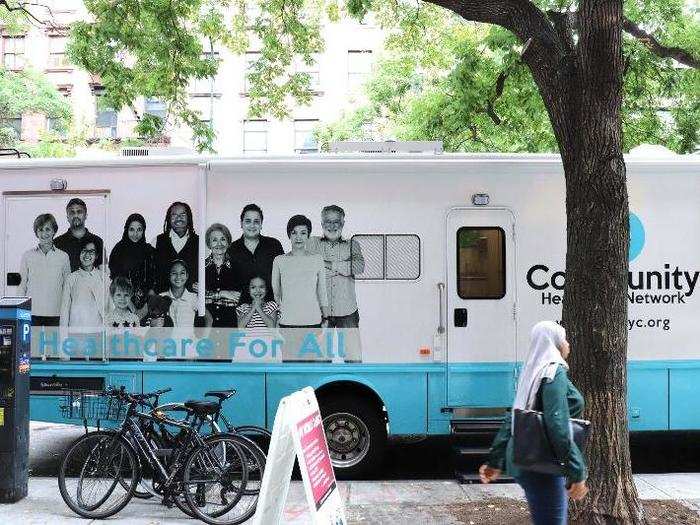
"It's really important for us to start building on integrated care and to connect behavioral-health agencies to healthcare services and vice versa," Hayes said.
Molano said CHN is also working on an emergency case fund to provide people with basic social services like housing, food, and substance-abuse treatment.
"We want to have that holistic approach and cover the social determinants of health," he said.
Popular Right Now
Popular Keywords
Advertisement